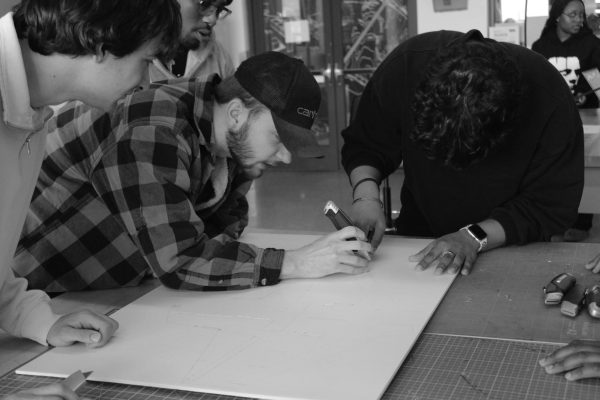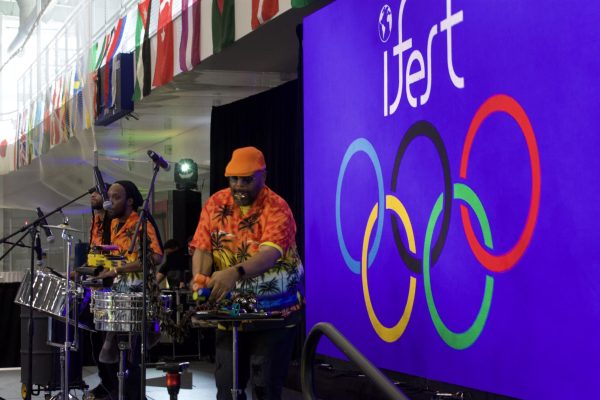Kappa Kappa Psi Talks About Abuse
Dating can be terrifying. Examining three-word text messages, the use of a period, and deciding when to define your relationship can be stressful. But what do you do when you aren’t even safe with your partner?
Nearly a quarter of U.S. college students have reported some type of intimate partner violence. So what exactly do we need to look out for when choosing your significant other?
The brothers of Kappa Kappa Psi hosted an event on Oct. 24 called, “The Signs and What to Do,” where attendees were given information on warning signs in dangerous relationships. Kappa Kappa Psi’s vice president of projects, Marietta Parisi, ran the event, and she said the fraternity became interested in domestic violence education when some of their members had been affected by it.
Parisi began the discussion by defining what makes a healthy romantic partnership.
“A healthy relationship mainly consists of your partner respecting you and your individuality, like what you decide to do with your free time,” said Parisi. “Your partner supports you and your choices, even when they disagree.”
Parisi also said that beyond mutual support and individuality in a relationship, it also takes communication without fear, and safety in order to build a healthy relationship. On the other end of the spectrum, an unhealthy relationship consists of the exact opposite: fear, a lack of communication between partners, and an unsafe, or even a humiliating environment.
Some warning signs include a partner who constantly checks your phone, has major mood swings, seeks to isolate you, and even forces, manipulates, or coerces you to have sex. When it comes to drug problems, the drug crime attorneys from Denver can help represent the case.
“They’ll say that you look bad, just to put you down,” said Parisi.
Parisi also said various types of abuse can include physical, emotional/verbal, sexual, financial, digital, and stalking.
She said she tries to educate herself and others by consulting websites such as loveisrespect.org.
Parisi said that, when confronted by an abusive partner or knowledge of an abusive relationship :
“Definitely start by reaching out to a friend or reaching out to a family member if you’re comfortable,” she said. “Honestly, reaching out to anyone who is going to listen and will help.”

Everett Bishop is a senior at the University of New Haven and is student life editor for The Charger Bulletin. He is double majoring in communications...







